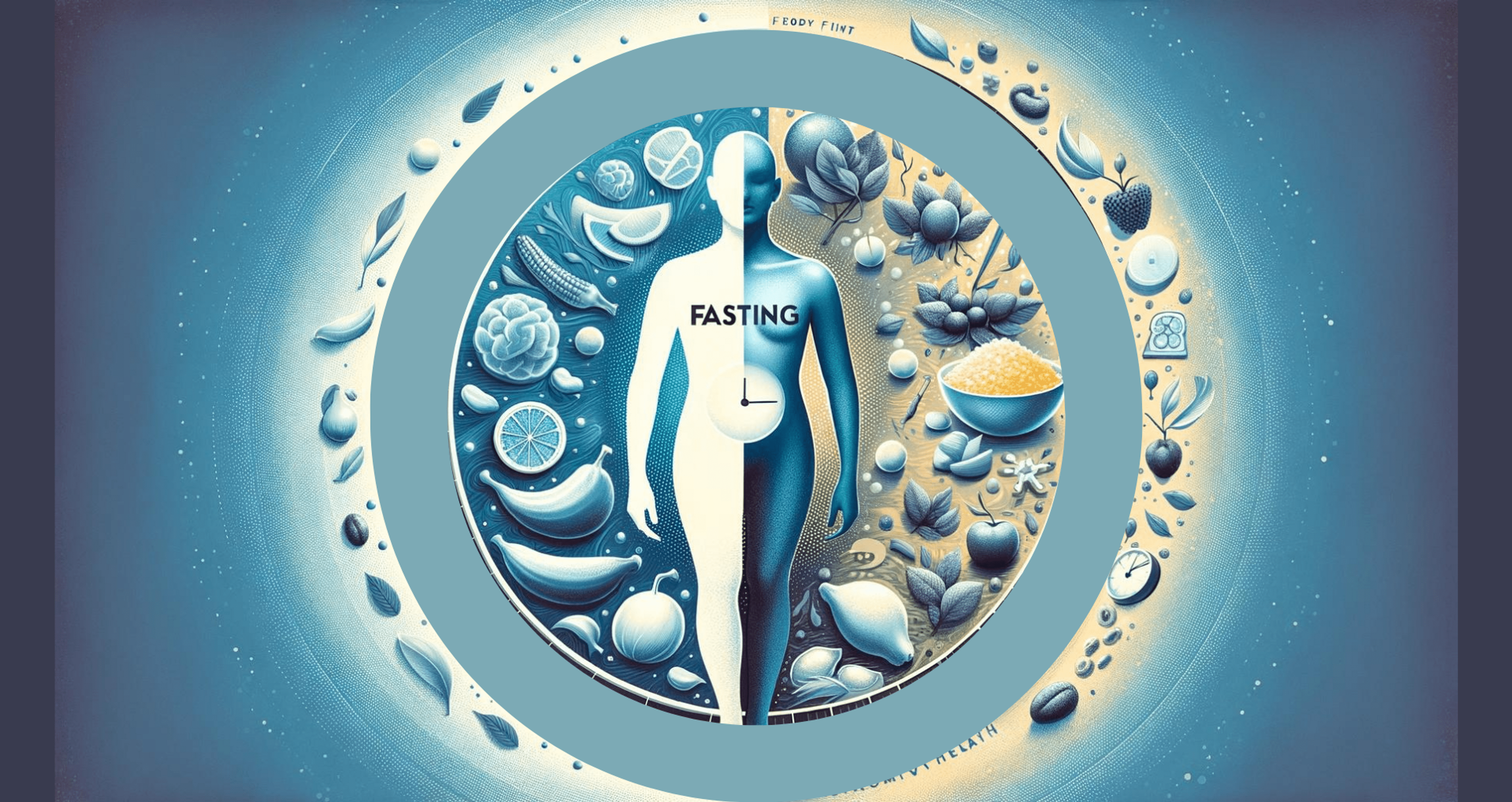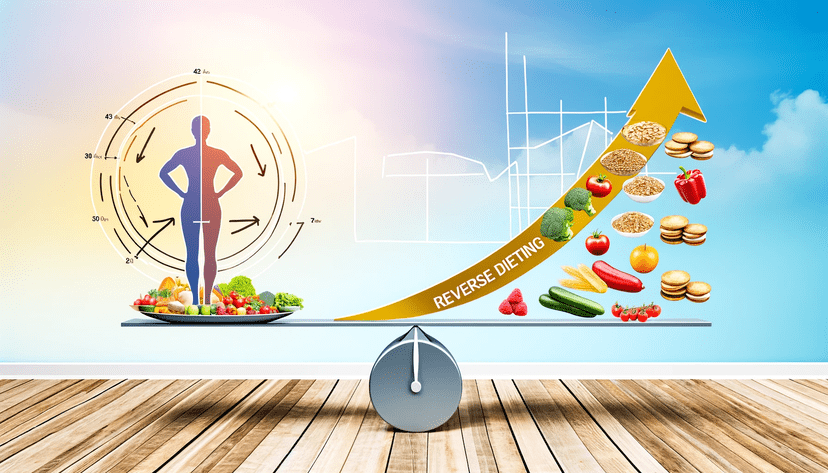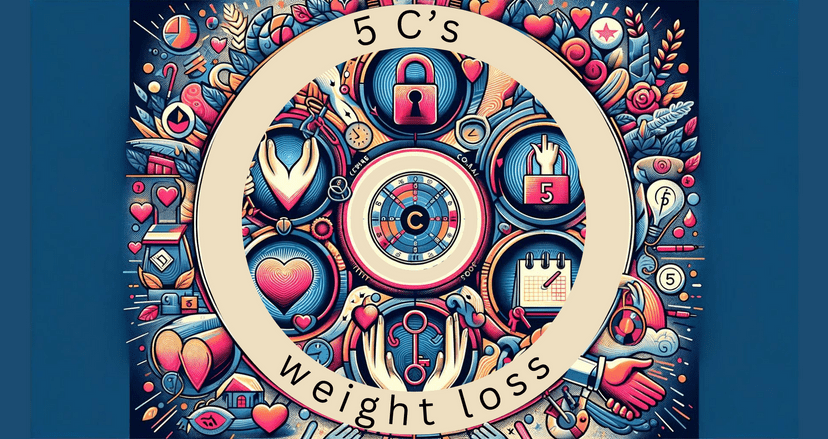Will I Lose Weight If I Eat Nothing for 5 Days?

Understanding the Immediate Effects of Fasting
Before diving into the topic on fasting, particularly not eating for 5 days, it's essential to understand the body's physiological responses to this severe dietary restriction. While short-term fasting can indeed result in immediate weight loss, the nature of this weight loss and its persistent effects on the body's functioning are not so straightforward.
How the Body Reacts to Short-term Fasting
When an individual starts fasting, its metabolic processes are dramatically affected. The body's primary energy source shifts from glucose obtained from daily food intake to utilizing stored glycogen in the liver. This transition occurs within the first day of fasting. However, as the fasting period extends, the body depletes the glycogen stores and resorts to breaking down fat stores for energy through a process known as ketosis.
Simultaneously, insulin levels in the body plummet, promoting fat burning, while the levels of growth hormone increase, facilitating fat utilization and preserving muscle mass.
One of the major issues with multi-day fasting is that the body may also resort to breaking down proteins in your muscles to provide the necessary amino acids for essential cell functions. This situation is particularly critical, as it can place the body in a rapid state of muscle protein degradation, which is unhealthy in the long term.
The Initial Weight Loss: What Are You Really Losing?
Now, let's address the question of weight loss during a fasting period of 5 days. Yes, one might experience immediate weight loss, but it's important to recognize what constitutes this weight loss. At the onset of fasting, the majority of weight loss is water weight not fat - as the body uses the stored glycogen, water is released and excreted.
So, the initial dramatic weight loss seen tends to be primarily fluid. However, as fasting continues, fat loss will start to occur as the body shifts into ketosis, but this ratio may come with muscle loss, and thus, not recommended for a health-conscious approach to weight reduction.
Risks and Side Effects of Not Eating for 5 Days
Embarking on a 5-day fast isn't a decision to take lightly, and people should always consult a healthcare provider before starting such a rigorous regimen. The potential risks and side effects must be acknowledged.
Some of these include lightheadedness, dizziness, fatigue, nausea, and nutrient deficiencies. Moreover, a phenomenon called 'refeeding syndrome,' which comprises metabolic disturbances that happen as a result of reinstitution of nutrition to patients who are starved, severely malnourished, or metabolically stressed due to severe illness.
Substituting a balanced, restrictive diet and physical activity can achieve healthy and sustainable weight loss. The focus should always be on maintaining a balance and ensuring the body receives the necessary nutrients it requires to function optimally.
In conclusion, while fasting, specifically not eating for 5 days, can provoke weight loss, the benefits might not outweigh the risks involved. Not only is much of the initial weight loss likely just water weight, but fasting could also result in muscle loss and other adverse health effects.
Long-Term Consequences of Extreme Fasting
When considering drastic measures for weight loss like extreme fasting, it's crucial to pay attention to the potential long-term health consequences, which can include metabolic slowdown, muscle loss, and nutritional deficiencies. Fasting for extended periods, especially over five days, may seem appealing as a quick method for weight loss, but the reality is that it's not sustainable and can be harmful to your health.
Metabolic Impacts of Prolonged Fasting
One of the foremost consequences of extreme fasting is the metabolic slowdown. Simply put, when you deprive your body of fuel, your metabolism shifts into survival mode and slows down to conserve energy. This is also known as starvation mode, and it makes weight loss more difficult in the long run.
Moreover, after prolonged fasting, when you start eating again, your body might store more fat as it readies itself for the next 'famine'. So paradoxically, starvation can lead to weight gain instead of weight loss.
Nutritional Deficiencies and Their Effects
There’s also the crucial matter of nutritional deficiencies. When you don't ingest any food for days, your body can't receive the necessary vitamins, minerals, and other nutrients that come with a balanced, healthy diet. This lack of nutrition can lead to a host of health issues including weakened immunity, brittle hair and nails, poor skin health, and more severe complications related to the heart, bone health, and cognitive functions.
Going days without food can also lead to muscle loss, not weight loss. Your body needs protein to build and repair tissue, including muscle tissue. When you don't supply it with enough, it starts to break down the muscle you already have for energy, essentially sacrificing muscle to save vital organs.
Psychological Impacts and Eating Disorders
Finally, let's not forget the significant psychological impact of extreme fasting. It can distort a person's relationship with food and potentially lead to eating disorders like anorexia and bulimia, which are serious mental health conditions with long-lasting consequences. It's essential to approach weight loss healthily, considering not only physical effects but also the psychological implications. Extreme fasting, falls under the category of disordered eating and tends further to isolate, generate stress, and anxiety around food, making it harder to maintain a balanced and healthy lifestyle.
In conclusion, while extreme fasting might lead to short-term weight loss, the long-term consequences on both your physical and mental health can be severe. It is essential to approach weight loss in a healthy, sustainable manner, focusing on balanced nutrition and regular physical activity rather than quick fixes. Base your weight loss strategies on scientific evidence and professional guidance to safely and effectively reach your health goals.
Healthier Alternatives for Sustainable Weight Loss
When considering weight loss, it's essential to focus on sustainable methods that promote overall health. Starvation or extreme fasting can harm your body and are often unsustainable in the long term. Furthermore, such methods can lead to muscle loss and a decrease in metabolic activity. Instead, consider the triad of balanced diet, regular physical activity and realistic goal setting, which provide a more effective and healthier approach to weight loss.
Balanced Diet for Healthy Weight Loss
A balanced diet is an indispensable part of sustainable weight loss. When we say "balanced", it implies consuming an appropriate proportion of macronutrients (carbohydrates, protein, and fat) and micronutrients (vitamins and minerals).
Your diet should be rich in lean proteins, fruits, vegetables, legumes and whole grains, which will fill you up without contributing too many calories. It is also important to pay attention to portion sizes, ensuring you're not consuming more than you need. Additionally, avoid processed foods, which are often high in unhealthy fats, sugar, and salt. Consuming ample fluids, primarily water, is equally important to ensure adequate hydration, which aids the digestion process.
Incorporating Regular Physical Activity
Along with a balanced diet, regular physical activity is a core component for weight loss. It's not only about burning calories, but regular exercise also helps improve metabolic health and muscle strength, reduce the risk of chronic diseases, and stimulate mood-enhancing endorphin release.
The type of exercise that's best depends on your physical condition, preferences, and schedule. A mix of both cardiovascular exercises like biking, running or swimming, and strength training exercises can be effective. It's recommended that adults get at least 150 minutes of moderate intensity or 75 minutes of high-intensity exercise each week, along with two days of strength training.
Setting Realistic Goals and Seeking Support
Setting realistic goals is crucial for sustainable weight loss. Losing 1 to 2 pounds per week is typically a safe and realistic goal. Gradual weight loss can contribute to long-term success in keeping the weight off. Additionally, it's important to understand that progress may not always be linear and fluctuating weight is not unusual.
Moreover, seeking support from family, friends, or a professional like a registered dietitian or a certified personal trainer can be beneficial. They can provide encouragement, hold you accountable, and help you navigate challenges that come with changes in your diet and physical activity.
In combination, these methods can lead to sustainable weight loss, improved health markers and an enhanced quality of life. It is a journey that requires patience, resilience, and commitment. Always remember that every small step towards a healthier lifestyle counts, reinforcing the idea that health should always take precedence over rapid and potentially harmful weight loss methods.
In Summary
In this comprehensive discussion on fasting, specifically not eating for 5 days, we've seen that while fasting can lead to immediate weight loss, the benefits might not always outweigh the risks involved. This weight loss typically begins with water weight, and as fasting continues, fat loss begins. Yet, it might come at the cost of muscle degradation, which isn't healthy in the long run.
Prolonged fasting has several potential adverse effects including metabolic slowdown, nutritional deficiencies, muscle loss, and potentially severe psychological impacts, thus hasn't considered a sustainable or safe method for weight loss.
Instead, a preferable alternative to fasting concentrates on a healthier and more sustainable approach to weight loss, which includes a balanced diet, regular physical activity and realistic goal setting. Considering weight loss is imperative to focus on sustainable methods that promote overall health, these methods can lead to sustainable weight loss, improved health markers and enhanced quality of life.
Plan of Action
After understanding the downsides associated with fasting, it would be wise to take a more health-conscious path towards your weight loss goals. This involves an effective strategic plan, as outlined below, that focuses on the triad of balanced diet, regular physical activity and realistic goal setting.
Action Steps
- Balanced Diet: Start incorporating a balanced diet that has the right proportions of macronutrients (carbohydrates, protein, and fat) and micronutrients (vitamins and minerals). Pay attention to portion sizes, limit processed food, and keep yourself well-hydrated.
- Regular Exercise: Begin engaging in regular physical activity. Aim for at least 150 minutes of moderate-intensity or 75 minutes of high-intensity exercise each week, with two days dedicated to strength training.
- Realistic Goal Setting: Set attainable, realistic goals to stay motivated throughout your weight loss journey. Think about losing 1 to 2 pounds per week as a healthy and achievable objective.
- Consulting Professionals: In case of challenges or doubts, consider seeking support from healthcare professionals like dietitians or certified personal trainers. Their guidance can help navigate you through the complexities and maintain the right balance.
Remember, sustainable weight loss is not just about shedding fast pounds - it's about making long-term changes to your lifestyle that result in enhanced health and quality of life. It might take time, but each small change you make towards a healthier lifestyle counts!













